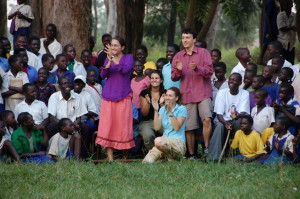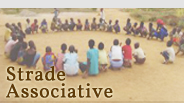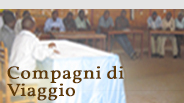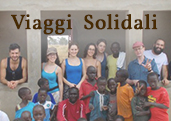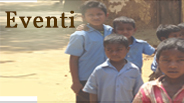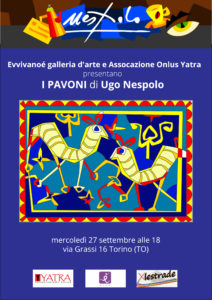Contact Person: Cristina Peyron; E-mail: comenoi@comenoi.org, Website: www.comenoi.org
“Every village is my village. Every man is my brother”.
To talk about this Association we decided to start from the message.
The sentence they leave us comes from Padre Codello and it is a lasting-long message born in the ‘60s.
Xlestrade met Piero Caciargli and his wife Franca Viola, members of the Association Come Noi Onlus.
Come Noi was born in 1966 following to the coming back from an adoption trip in India of a group of families from Torino, including Walter and Clara Cavallini. In this occasion came to their mind that to adopt was really good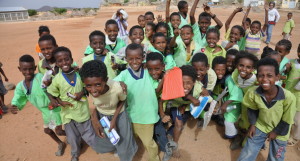 , but it was necessary also to act for all the Indians that were still living in a condition of extreme poverty and not self-sufficient as well.
, but it was necessary also to act for all the Indians that were still living in a condition of extreme poverty and not self-sufficient as well.
Come Noi was born with the intent to promote better life conditions and to allow the locals to be self-sufficient, by financing agricultural projects in first place.
Padre Villanova has been the first promoter of a project in India. More in detail, he was operating in Polur, a village in Tamil Nadu in the South of India. The first “dispatch” didn’t include any money or food, but consisted of sheep and goats for the local families in order to be independent.
The next step has been to digging out an artificial basin to collect rain water for irrigation. P. Codello became the referent for the project for Come Noi, a project that has been expanded to agricultural development and independence of several villages, having a relevant impact on the local economy.
From that moment this kind of “help” should become a part of the family balance, should have been continuous giving breathing-space to the other projects, even if it wasn’t really important “how much”.
This philosophy is still present in Come Noi action.
Come Noi celebrated in 2016 their 50 years of activity. The projects evolved and increased by the time as well as the number of Nations they are working in.
Every single project is born to face specific problems for a specific community which if the project is approved, manages it at a local level. The local supervisor is a member of the local community, he could be a laic person, but most of the time it is a local religious already present in the community.
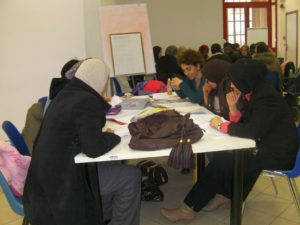 Come Noi “offers” just a volunteer supervisor who keeps in touch the Association with the locals and manages the project evolution and necessities to guarantee its success. The main objective is that the project should be autonomous at the end of the intervention, so it is important to develop a solid proposal responding to real needs to be financed and supported. This is the reason why each proposal is carefully examined by the managing committee, made up by the associate of Come Noi. The participants are totally volunteers, so that it is possible to maintain a low management cost, less than 5 % of the total budget. This means that the 95% of the revenue goes directly to the projects.
Come Noi “offers” just a volunteer supervisor who keeps in touch the Association with the locals and manages the project evolution and necessities to guarantee its success. The main objective is that the project should be autonomous at the end of the intervention, so it is important to develop a solid proposal responding to real needs to be financed and supported. This is the reason why each proposal is carefully examined by the managing committee, made up by the associate of Come Noi. The participants are totally volunteers, so that it is possible to maintain a low management cost, less than 5 % of the total budget. This means that the 95% of the revenue goes directly to the projects.
Here the countries where they are working or they used to work during the years:
Brazil, Eritrea, India, Kenya, Mozambique, R. D. Congo, Rwanda, Senegal, Sud Sudan, Togo, Uganda.
Micro-projects were realized in several other countries by demand.
Xlestrade asked Piero and Franca about Come Noi Onlus future projects.
First of all, their commitment in Africa by developing with new initiatives the existing projects in Kenya, Senegal, Uganda, Rwanda, R. D. Congo and Togo.
Furthermore the attention to the “new poverty problem” of Italian people and not only of foreign people in Italy.
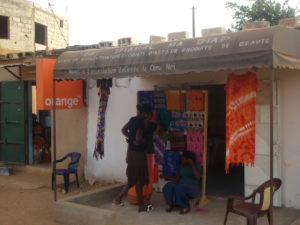 The Association sends them twice a year a news bulletin with the updates about the projects. Once a year close to Christmas is organized an open meeting where several activities are illustrated with the presence of local supervisors if possible, public questioning and requests.
The Association sends them twice a year a news bulletin with the updates about the projects. Once a year close to Christmas is organized an open meeting where several activities are illustrated with the presence of local supervisors if possible, public questioning and requests.
The second one is becoming an associate, being part of the managing committee. All the decisions are taken by unanimity, even if it takes time and long discussions. The project belong to all of them, not to one only.
They define themselves as a laic Association. But it is curious to know that every assembly finishes with one minute of silence, so that each member could have time to think, pray or whatever.
We want to conclude this long article by wishing them good luck and … Xlestrade would really like that “every men should be our brother” .
